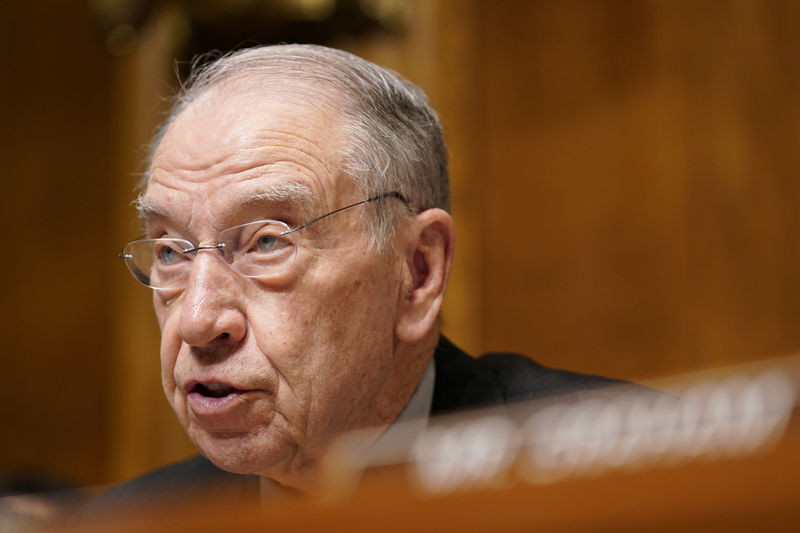WASHINGTON (Reuters) - U.S. President Donald Trump should be patient with House Democrats as they work toward approval of the U.S.-Mexico-Canada trade agreement, Senator Charles Grassley, the Republican who heads the powerful Senate Finance Committee, said on Wednesday.
The Trump administration is pressing lawmakers to quickly ratify the pact that will replace the North American Free Trade Agreement (NAFTA), but Democrats say they will proceed only when their concerns related to labor, enforcement, climate and pharmaceuticals have been addressed.
U.S. Vice President Mike Pence on Tuesday called for speedy approval of the deal, and said he was hopeful the Democrat-controlled House of Representatives would approve the deal this fall if House Speaker Nancy Pelosi allowed a vote.
The agreement, which leaders from the United States, Mexico and Canada signed in November, must be ratified by lawmakers in all three countries. Mexican lawmakers have already done so.
Grassley told reporters on Wednesday that he hoped "some protectionists at the White House" would not prod Trump to take action that could be counterproductive.
"It's very necessary that the president hold his patience because nothing is going to happen if Pelosi doesn't want it to happen," he said.
"Somebody there in the White House that doesn't have common sense better not push the president to do something erratic," Grassley said without naming names.
Trump has repeatedly threatened to withdraw the United States from NAFTA, although Republican Senator Rob Portman of Ohio on Tuesday said he did not believe that Trump had the legal authority to do so.
Grassley said he hoped Trump did not do so, but remained upbeat the agreement would be approved by Congress this fall. "I think it's going to come up earlier (rather than) later."
Congressional staff and officials from the U.S. Trade Representative's office are expected to continue meeting regularly this month about the trade agreement.
Democratic lawmakers have lauded Lighthizer for his work on the issue. But sources familiar with the discussions say there is still a great deal of work to be done, including mapping out how the existing NAFTA and a separate U.S.-Canada agreement will be phased out once the new deal takes effect.

"We do think there's urgency to get it done, but the substance will drive the timing," said one of the sources.